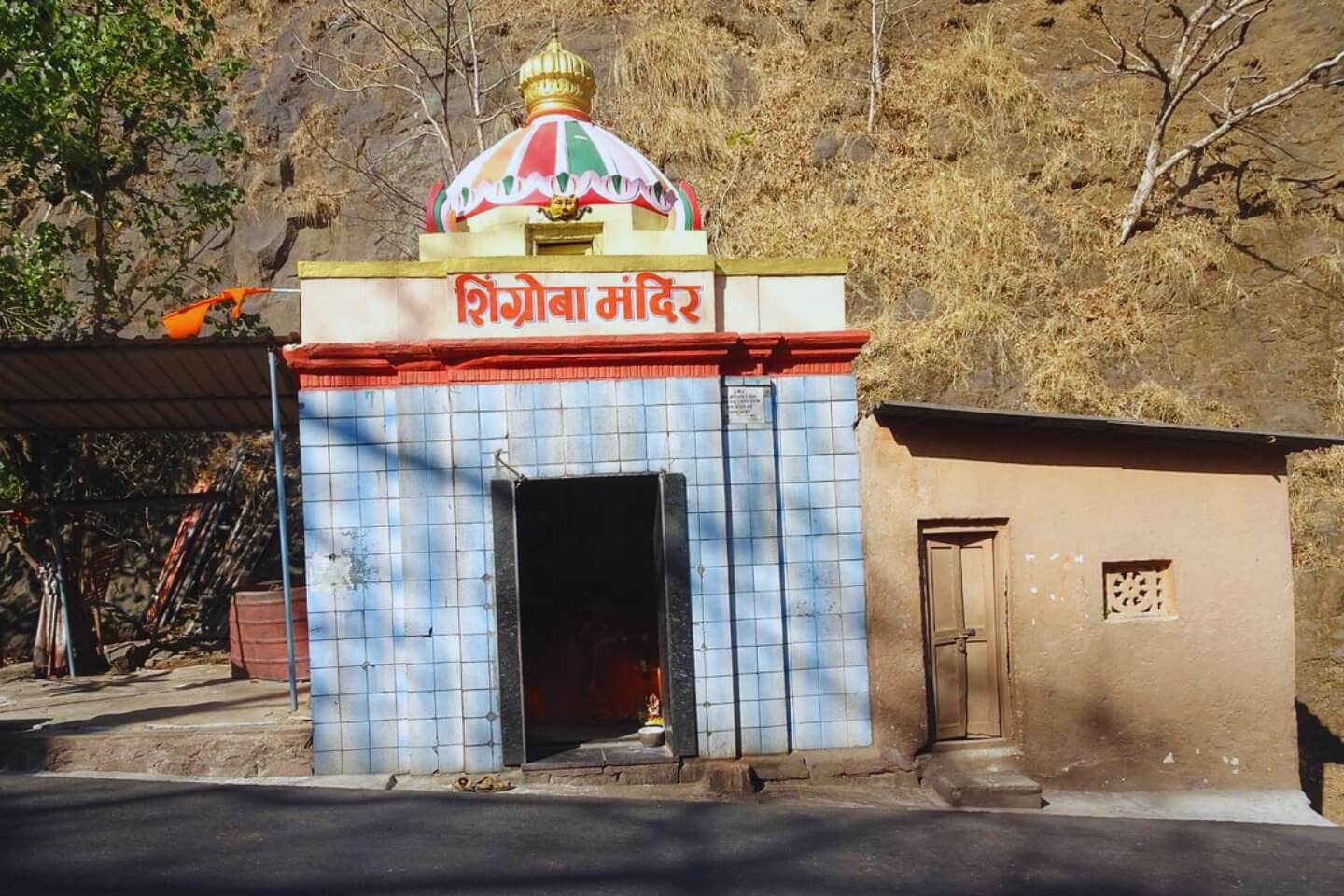Shingroba Temple Lonavala Entry Fee
- No entry fee
Shingroba Temple Lonavala Phone
N/A
Rating:  | 4/5 stars
| 4/5 stars
Based on total 41 reviews
Shingroba Temple Lonavala Address: Old Khandala Ghat, Khopoli, Maharashtra, 410204, India
Lonavala Tour Packages
Lonavala Tour PackagesShingroba Temple Lonavala Timings
| Day | Timing |
|---|---|
| Monday | 5:00 am – 11:00 am 4:00 pm – 8:00 pm |
| Tuesday | 5:00 am – 11:00 am 4:00 pm – 8:00 pm |
| Wednesday | 5:00 am – 11:00 am 4:00 pm – 8:00 pm |
| Thursday | 5:00 am – 11:00 am 4:00 pm – 8:00 pm |
| Friday | 5:00 am – 11:00 am 4:00 pm – 8:00 pm |
| Saturday | 5:00 am – 11:00 am 4:00 pm – 8:00 pm |
| Sunday | 5:00 am – 11:00 am 4:00 pm – 8:00 pm |
Hill stations are an escape from bustling city life, and one such quaint yet beautiful place is Lonavala. It has so much to offer to everyone who visits it. Perched on the curve of a mountain and snuggled between Khopoli and Khandala lies a magnificent shrine - The Shingroba Temple.
Shingroba Temple is a small and peaceful place where people go to pray and find inner calm. Constructed in the early 19th century, this beautiful temple boasts captivating architecture with several beautiful carvings on the walls and pillars.
A trip to Shingroba Temple guarantees a serene and refreshing experience, soothing your senses with its peaceful ambience.
All about the Shingroba Temple, Lonavala
Shingroba Temple, constructed in the 19th century, graces the picturesque hill station of Lonavala in Maharashtra. The temple derives its name from an old shepherd known as ‘Shingroba.’
In 1853, during the expansion of the Mumbai Thane Railway to Pune, the British encountered difficulties in navigating their way to Lonavala. After reaching the Khandala Ghat, their progress was halted.
It was then that they encountered Shingroba, who guided them towards Lonavala.
Upon being asked by a British officer for a wish, Shingroba expressed his desire to liberate his homeland and its people. Tragically, the officer responded by fatally shooting Shingroba.
Since that fateful incident, Shingroba has been revered by the locals as a symbol of resistance and patriotism. In honour of his sacrifice, a temple was erected in his memory, symbolising his legacy as a freedom fighter.
As you start your journey to Shingroba Temple, you are welcomed by the calming sounds of nature and the pleasant chirping of birds.
Stepping into the temple premises, you are greeted by the intricate architecture and timeless beauty of the temple's structure. Inside the temple, the air is filled with the fragrance of incense sticks and chanting, creating a peaceful atmosphere for meditation and introspection.
Morning aarti is followed by the distribution of delicious prasad, making an early visit here a delightful experience. The temple's caretakers work tirelessly to maintain its sanctity and ensure its sacred flame continues to burn bright for years.
Many vehicles pause near the Shingroba temple, offering prayers before continuing their journey.
While there is little else to explore around the temple, it remains a significant stop for travellers seeking blessings for a safe onward journey.
Image Gallery of Shingroba temple Lonavala
Entry fee and timings of Shingroba temple, Lonavala
The Shingroba temple is free to visit for its devotees.
The time to visit the temple is 5:00 AM to 11:00 AM and 4:00 PM to 8:00 PM.
Best time to visit the Shingroba Temple, Lonavala
You can visit the Shingroba Temple any time of the year. But taking into account other places of Lonavala, a trip to Shingroba temple is best during the monsoon season when the hill station is blooming with wonders.
Whether you seek solace, guidance, or a moment of quiet reflection, this ancient sanctuary offers all that and more. Immerse yourself in the divine energy of Shingroba Temple and experience the profound sense of peace and serenity that awaits you. It is a short trip worth your time. So, book a Lonavala tour package from Lonavala Khandala Tourism and immerse yourself in the charm of this hill station. For more information and booking, please fill the Contact Us form.


